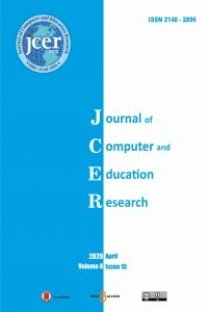Computational Analysis of Igbo Numerals in a Number-to-text Conversion System
syntax-based, Igbo language, translator, numeral, computational
Computational Analysis of Igbo Numerals in a Number-to-text Conversion System
syntax-based, Igbo language, translator, numeral, computational,
___
- Ablanedo, J., Aiken, M. and Vanjani, M. (2007) ‘Efficacy of English to Spanish automatic translation’, Int. J. Information and Operations Management Education, Vol. 2, No. 2, pp.194–210. Akinadé, O.O. (2014). ‘Formal Analysis and Computational Implementation of a Number to Yoruba Text Translation System’. Unpublished M.Sc. Thesis, Department of Computer Science and Engineering, Obafemi Awolowo University, Ile-Ife. Craciunescu, O., Gerding-Salas, C., & STRINGERO'KEEFFE, S. (2004). Machine Translation and Computer-Assisted Translation. Machine Translation and Computer-Assisted Translation. Ekundayo , S. A. (1977). Vigesimal Numeral Derivational Morphology: Yoruba Grammatical Competence Epitomized. Anthropological Linguistics, 19(9):436 - 453. Everett, D. (2005). Cultural constraints on grammar and cognition in Pirahã.Current anthropology, 46(4), 621-646. Eves, H.W.(1969). An Introduction to the History of Mathematics. Holt, Rinehart and Winston, Newyork,3rd edition. Hammarstron, H. (2009). Rarities in Numeral Systems. In Wohlgemuth, J. and Cysouw, M, Editors, Rara& Rarissima: collecting and interpreting unusual characteristics of human Languages; Empirical Approaches to languages Typology, pp.7-55. Mouton de Gruyter. Hutchins, J. (2005). Current commercial machine translation systems and computer-based translation tools: system types and their uses. International Journal of Translation, 17(1-2), 5-38. Knight, K. (1997). Automating knowledge acquisition for machine translation. AI Magazine, 18(4), 81. Knight, K., and Graehl, J. (1998). Machine transliteration. Computational Linguistics, 24(4), 599-612. Mbah, E. E., Ahamefula, N. O., & Ayegba, M. (2014). “A Comparative Analysis of the Numerals and Counting Systems of Igbo and Igala”. Research on Humanities and Social Sciences Vol.4, No.26. Ogomaka, P.M.C, (2005). ‘Traditional Igbo Numbering System: A Reconstruction’.Published Thesis, Department of Evaluation and Research Methods, University of Nigeria, Nsukka. Sanusi, I. O. (1995). “Counting in Base Five: The Derivation of Numerals in Bàtònū”. In Nigerian Language Studies. No 3, Pp, 13 – 19. Wilder, R.L., 1973, Transworld Student Library: Evolution of Mathematics Concepts, London: Transworld Publishers. Yusuf, O. (Ed.). (2007). Basic linguistics for Nigerian languages teachers. Linguistic Association of Nigeria. Zaslavsky, C. (1973). Africa Counts. Prindle, Weber & Schmidt. Inc., Boston, Mass.
- Yayın Aralığı: 2
- Başlangıç: 2013
- Yayıncı: Tamer KUTLUCA
Fatih ULUKAYA, Nail YILDIRIM, Vildan ÖZEKE
Computational Analysis of Igbo Numerals in a Number-to-text Conversion System
Gençlere Yönelik Dijital Vatandaşlık Ölçeğinin Geliştirilmesi: Geçerlik ve Güvenirlik Çalışması
Zafer KUŞ, Erhan GÜNEŞ, Ugur BAŞARMAK, Hamza YAKAR
Üzeyir BEKERECİ, Mustafa YAZICI
Looking for a Black Cat: EFL Teachers’ Perception of Democracy
Fen Bilimleri Öğretmen Adaylarının Öğrenme Stillerinin Çeşitli Değişkenlerle İncelenmesi
